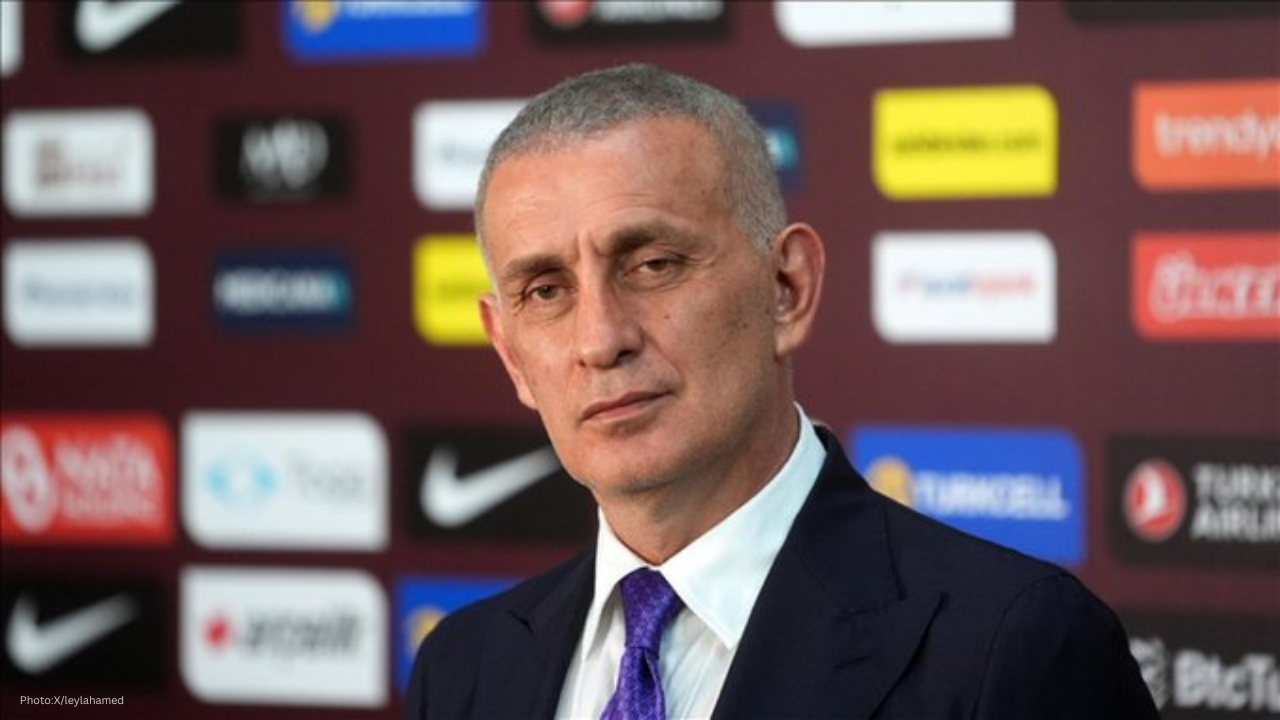
Post by : Naveen Mittal
In a striking development that links sports with geopolitics, Turkiye has become the first UEFA member to formally call for Israel’s suspension from international football tournaments. The Turkish Football Federation, backed by a coalition of 48 international athletes, urges FIFA and UEFA to remove Israel from all competitions in response to its actions in Gaza. The appeal raises questions about how sports bodies navigate political controversy, and what consequences may follow for the Israel national team.
Turkish Football Federation President Ibrahim Haciosmanoglu sent a letter to FIFA and UEFA leadership stating that “it is now time” for action. The letter frames Israel’s presence in football as incompatible with sporting values amid the Gaza conflict. Alongside this, 48 high-profile athletes—including players from multiple countries—published a statement under the banner Athletes 4 Peace demanding that Israel be suspended until it complies with international law and ends civilian deaths. Among the signatories are notable sports figures such as Paul Pogba and Moeen Ali. The statement emphasizes that sport should uphold justice and humanity.
Pressure on football’s governing bodies has been growing over their perceived inaction in the face of global conflict. Israel is currently attempting to qualify for the 2026 FIFA World Cup. UEFA has authority to bar Israel from European competitions, while FIFA handles World Cup qualifiers. Turkiye’s request comes at a moment when UEFA may vote on excluding Israel from its tournaments. Some observers see the move as a test of whether sports organizations can—or will—act against nations accused of human rights violations.
The United States Department of State responded swiftly, stating it would “absolutely work to fully stop any effort to attempt to ban Israel’s national football team” from the 2026 World Cup. This signals strong diplomatic resistance to sports sanctions. On the other side, proponents argue that silence by sporting bodies undermines their moral authority. Inside FIFA, many see the hurdle as whether such a suspension would set precedent for intervention in political-zones through sport. Israel has warned that exclusion from UEFA would not automatically block them from World Cup qualifiers, though conflicts between FIFA and UEFA jurisdictions may arise.
One frequent point of comparison is Russia’s exclusion from UEFA and FIFA following its 2022 invasion of Ukraine. Critics ask why similar measures have not been applied to Israel. UEFA and FIFA banned Russia from competitions, citing violations of international peace. The argument made by Israel’s critics is that a consistent standard should apply. However, Israel politicians and supporters argue that conflict contexts differ significantly and that sport should remain apolitical. Whether football bodies adopt a consistent standard is now under scrutiny.
If UEFA votes to suspend Israel, its national team could be excluded from European qualifiers and club competitions. That would be a heavy blow to Israeli football and could affect sponsorships, scheduling, and player careers. If FIFA follows, Israel's path to World Cup 2026 would be jeopardized. Even beyond competition, such a ban would be symbolic—depriving a nation of international exposure and further isolating it politically. Critics fear that politicizing sport could erode the neutrality that governing bodies claim to maintain.
Implementing a suspension isn’t straightforward. FIFA's statutes generally caution against political interference, and any decision to suspend a member must navigate internal statutes, appeal mechanisms, and challenges in court. UEFA would need a majority vote among its members to act. Israel’s federation could appeal to CAS (Court of Arbitration for Sport) if they feel the decision violated its rights. Even if UEFA suspends Israel, FIFA may resist or delay parallel action. The intersection of sport governance, diplomacy, and law makes this a complex showdown.
This push brings into focus the broader role of sports as a platform for protest and moral pressure. In recent years, athletes and federations have increasingly tied sporting decisions to human rights concerns—whether over apartheid, racial justice, or political conflicts. If governing bodies accede to Turkiye’s demand, it may embolden similar calls in other conflicts. But it also risks turning sports bodies into arenas of political contest, which they have long resisted.
Turkiye’s demand, backed by athletes, places intense pressure on FIFA and UEFA to confront one of the thorniest intersections in modern times: politics and sport. Whether football’s global institutions act or remain passive speaks volumes about how they balance neutrality with moral responsibility. For Israel’s football federation, a suspension would not only be a sporting loss but a symbolic rebuke. For global sport, the decision could mark a turning point in how political conflicts are reflected—or resisted—on the playing field.










Kazakhstan Boosts Oil Supply as US Winter Storm Disrupts Production
Oil prices inch down as Kazakhstan's oilfield ramps up production, countered by severe disruptions f

Return of Officer's Remains in Gaza May Open Rafah Crossing
Israel confirms Ran Gvili's remains identification, paving the way for the Rafah border crossing's p

Border 2 Achieves ₹250 Crore Globally in Just 4 Days: Sunny Deol Shines
Sunny Deol's Border 2 crosses ₹250 crore in 4 days, marking a significant breakthrough in global box

Delay in Jana Nayagan Release as Madras HC Bars Censorship Clearance
The Madras High Court halts the approval of Jana Nayagan's censor certificate, postponing its releas

Tragedy Strikes as MV Trisha Kerstin 3 Accident Leaves 316 Rescued
The MV Trisha Kerstin 3 met an unfortunate fate near Jolo, with 316 passengers rescued. The governme

Aryna Sabalenka Advances to Semi-Finals, Targeting Another Grand Slam Title
Top seed Aryna Sabalenka triumphed over Jovic and now faces Gauff or Svitolina in the semi-finals as